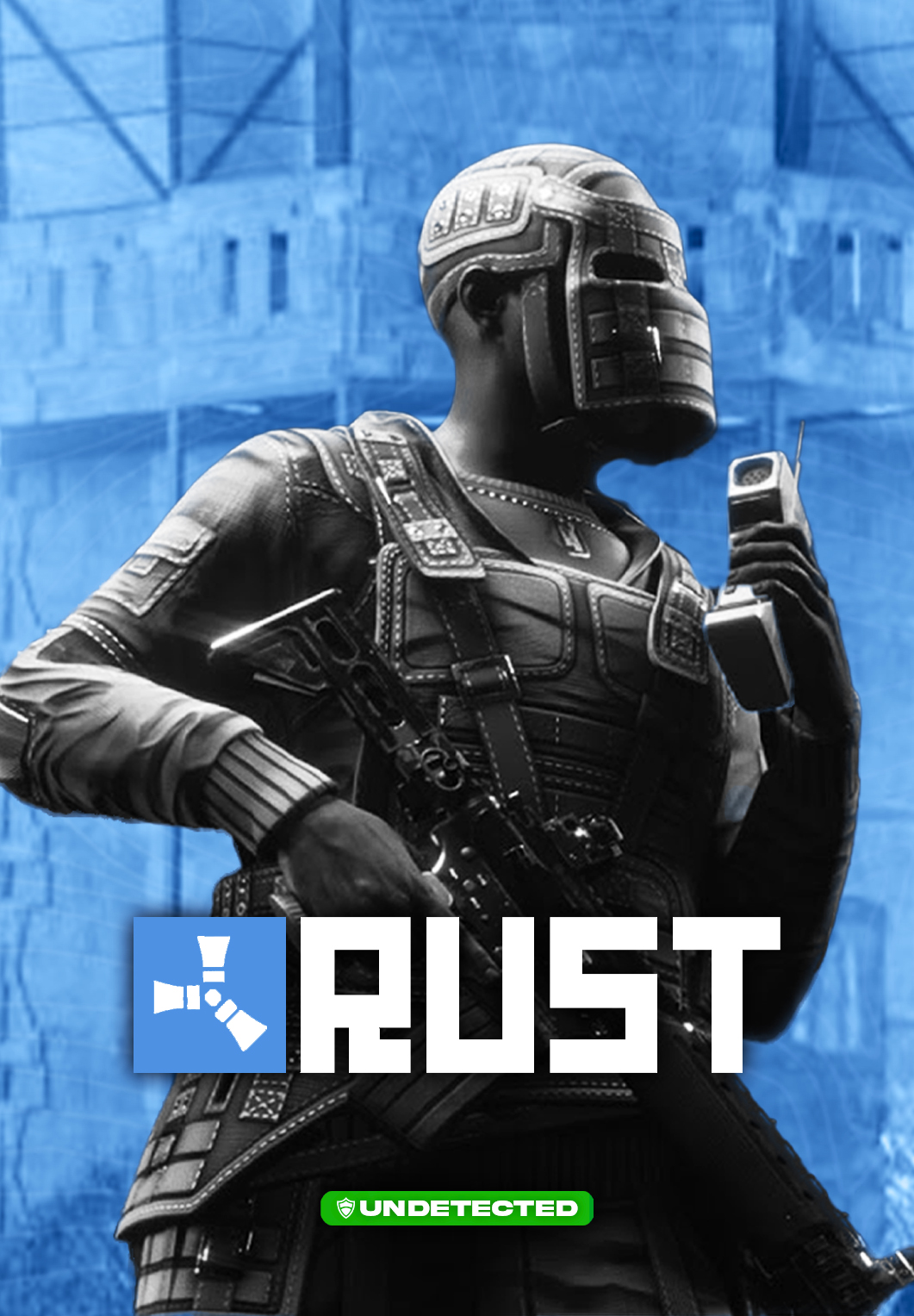How to Make Rust Cheats
By Woody
Disclaimer: Cheating in Rust or any online game violates the game’s Terms of Service and can get you permanently banned. The material below is provided for educational purposes only and is intended for learning about reverse engineering, game security research, and defensive programming. Use this information responsibly and avoid applying it on live servers or in ways that harm other players.
What Counts as a Rust Cheat?
Rust cheats are programs or scripts that alter game behavior to provide an advantage — for example, ESP (seeing players through walls), aimbots, recoil scripts, speed hacks, and similar tools. From an engineering perspective these fall under game hacking and reverse engineering.
- External cheats run outside the game process and interact with memory through OS APIs.
- Internal cheats are DLLs injected into the Rust process; they hook engine functions, modify logic, or render using the game’s graphics API.
Prerequisites
1. Skills & Knowledge
- Rust or C/C++ basics (expect to use unsafe code for low-level Windows operations).
- Windows internals & WinAPI (OpenProcess, ReadProcessMemory, VirtualAllocEx, etc.).
- Reverse engineering tools (IDA Pro, GHIDRA, Cheat Engine, Il2CppDumper, dnSpy) for studying binaries and metadata.
- 3D math (vectors, matrices) for coordinate transforms used by overlays like ESP and aimbots.
2. Hardware & Software
Need | Why |
|---|---|
Second PC or VM | Safe testing without risking primary accounts or hardware bans. |
Local Rust server | Allows experimentation without Easy Anti-Cheat (EAC) active for safer debugging. |
WinAPI crates (winapi, windows), process_memory | Enable memory access and FFI from Rust projects. |
Overlay library (ImGui-rs, D3D11, or GDI) | Used to render ESP boxes, HUD info, or diagnostic overlays. |
Optional DMA card | Hardware-level external reads for advanced research (specialized and costly). |
Step-by-Step Guide (High-Level)
The following is a high-level overview of the typical research and development workflow used by engineers studying game clients and anti-cheat behavior. It is not a how-to for deploying cheats on live servers.
1. Spin Up a Local Test Server
- Run a local dedicated server to test safely and to observe client behavior without anti-cheat protections enabled.
- Testing locally lets you attach debuggers and instrumentation tools without risking enforcement actions on public services.
2. Locate the Game's Base Address (Research Purpose)
When analyzing a client binary, researchers enumerate processes and modules to locate relevant modules. Store module base pointers for safe, repeatable analysis and pointer arithmetic when studying memory layouts.
3. Identify Data Structures & Offsets
- Use static analysis tools to inspect managed/unmanaged assemblies and locate classes and fields of interest.
- Document offsets and layouts carefully and keep them updated across patches, since offsets change frequently.
4. Prototype a Non-Intrusive Overlay (For Research)
- Read entity lists and filter for relevant game objects in a controlled, local environment.
- Translate world coordinates to screen space using view matrices to visualize positions for debugging (WorldToScreen).
- Render diagnostics in a separate overlay window rather than modifying game rendering to reduce intrusiveness.
5. Moving to Internal Hooks (Advanced Research Only)
Injecting code into a running process enables more direct interaction with game internals. In research contexts this is used to study engine behavior and anti-cheat countermeasures, but it carries much higher risk when used against protected services.
6. Responsible Research & Ethics
- Sanitize reads/writes: avoid noisy patterns that could be mistaken for malicious behavior.
- Respect terms of service and use test environments whenever possible.
- Consider reporting security issues to developers or pursuing formal bug bounty / security research programs instead of weaponizing findings.
Common Pitfalls
- Offsets and memory layouts change frequently after patches — automation and careful versioning are essential for accurate analysis.
- Mixing coordinate spaces (world vs. local vs. camera) leads to visualization errors.
- Injected hooks can crash the client if run at the wrong time in the initialization sequence.
- Underestimating anti-cheat protections can result in permanent bans or legal issues if applied irresponsibly.
FAQs About How to Make Rust Cheats (Research Context)
What language is best for this kind of research?
C++ has a mature ecosystem for game hacking, but Rust is increasingly viable for systems-level work; expect to use unsafe blocks and FFI for Windows-specific tasks.
Do I need a DMA card?
No — DMA hardware is specialized and not required for most academic or research projects. It is hardware-level and used mainly in niche external research scenarios.
How do researchers track offsets?
Automated dumping tools and reproducible analysis pipelines help, but for learning purposes it’s valuable to manually trace structures and understand how they map to runtime memory.
Can you be 100% undetected?
There is no guarantee. Commercial anti-cheat systems update frequently; treat any experimental tooling as temporary and use burner accounts if you must test on networks where allowed.
FAQs About Division Cheats
Who are Division Cheats?
Division Cheats is a private provider known for external, stream-proof Rust tools and for providing support and regular updates to its users.
Does Division Cheats offer lifetime licenses?
No — most maintenance models use periodic licensing to cover offset updates and anti-cheat bypass research.
Is any cheat truly undetected?
No tool is immune to detection forever. Responsible providers emphasize playing on non-primary accounts and continuous maintenance.
Can I pay in crypto?
Some providers accept cryptocurrency for privacy-conscious purchasers.
Final Thoughts
Creating cheats touches on low-level programming, reverse engineering, and 3D math — it’s technically challenging and educational. If your interest is security research, consider focusing on defensive tools, vulnerability disclosure, or bug bounty programs rather than using findings against live communities. Always prioritize ethics and the legal boundaries of your jurisdiction.







